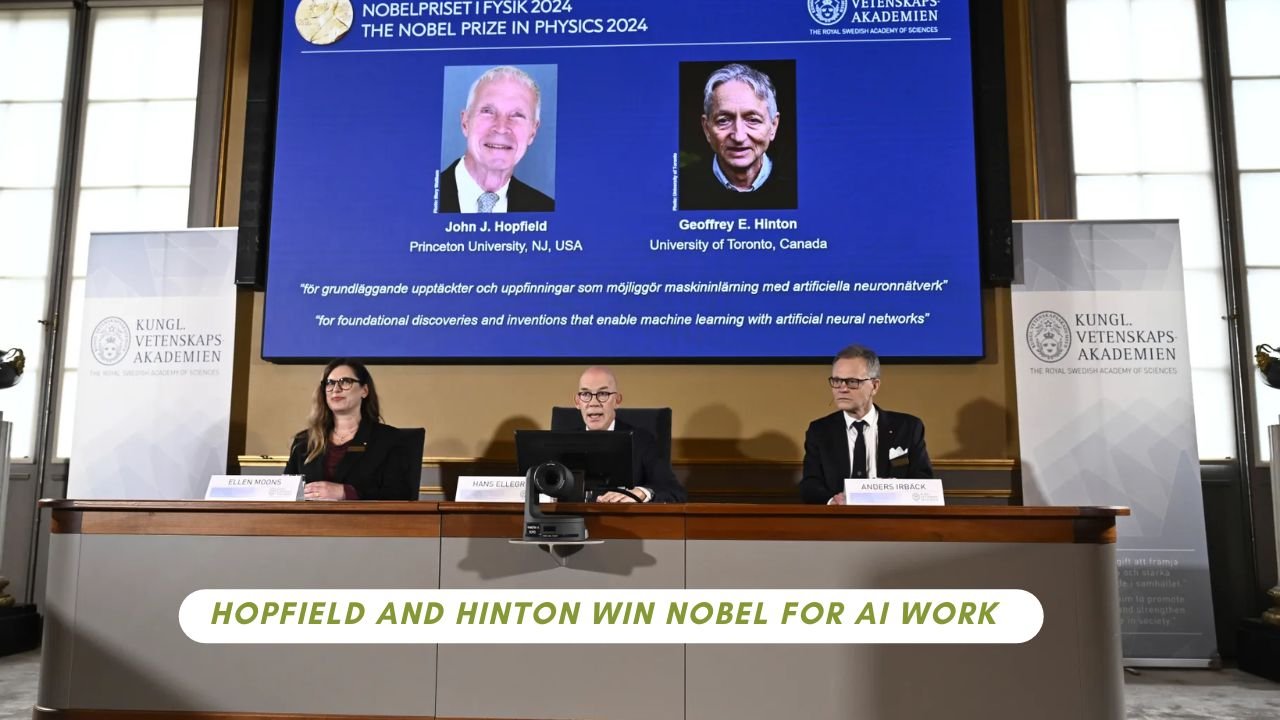The 2024 Nobel Prize in Physics has been awarded to John Hopfield and Geoffrey Hinton for their pioneering contributions to machine learning and neural networks. This prestigious recognition underscores the profound impact their work has had on modern technology and scientific research.
Trailblazers in Artificial Intelligence
John Hopfield and Geoffrey Hinton’s groundbreaking research in the 1980s laid the foundation for today’s AI technologies, revolutionizing everything from image recognition to natural language processing. Their innovative approaches to neural networks have paved the way for the AI-driven world we live in today.
John Hopfield’s Revolutionary Hopfield Network
In 1982, John Hopfield introduced the world to the Hopfield network, a type of recurrent artificial neural network that brought a paradigm shift in how we approach machine learning. Drawing inspiration from condensed matter physics, particularly atomic spin systems, Hopfield created a neural network capable of storing and reconstructing patterns in data.
Hopfield’s work at Caltech, which he fondly described as a “splendid environment” for testing his ideas, led to the development of an associative memory system that could correct distorted or incomplete images. This innovative approach demonstrated how computer circuits could mimic brain functions, setting the stage for future advancements in artificial intelligence.
Geoffrey Hinton: The “Godfather of AI”
Building on Hopfield’s foundational work, Geoffrey Hinton took neural networks to new heights with the development of the Boltzmann machine in 1985. This deep learning model showcased the ability to autonomously recognize patterns in data, learn from examples, classify images, and generate new patterns based on its training.
Hinton’s contributions extended far beyond the Boltzmann machine. His influential papers on backpropagation, a crucial learning process used in modern machine learning systems, further cemented his status as a pivotal figure in AI research. Hinton’s work at the University of Toronto and his later involvement with Google significantly advanced the field of artificial neural networks, earning him the well-deserved title of the “godfather of AI.”
The Far-Reaching Impact of Their Work
The Nobel Committee emphasized that Hopfield and Hinton’s discoveries have provided humanity with a powerful new tool, highlighting the far-reaching implications of their research on contemporary technology and scientific exploration.
Their neural network models form the building blocks of machine learning, with applications spanning various scientific disciplines:
- Particle physics
- Astrophysics
- Material science
- Computer vision
The Boltzmann machine, developed by Hinton, laid the groundwork for current generative AI models like ChatGPT, which have taken the world by storm. Their contributions have revolutionized image recognition, language processing, and pattern analysis, leading to breakthroughs across multiple fields of study.
Hinton’s Recent AI Concerns
Despite his significant contributions to AI, Geoffrey Hinton has recently expressed concerns about the technology’s rapid development and potential risks. In 2023, he left his position at Google to speak openly about these issues, fearing that people may soon be unable to distinguish AI-generated content from reality.
After receiving the Nobel Prize, Hinton compared AI’s impact to the Industrial Revolution, stating it would “exceed our intellectual capabilities.” This statement highlights both the transformative potential and the ethical challenges posed by advanced AI systems.
Hinton has also voiced opposition to the use of AI in military applications and admitted that a part of him regrets his life’s work. These concerns underscore the complex ethical landscape surrounding AI development and deployment.
A New Chapter in AI History
The awarding of the Nobel Prize to Hopfield and Hinton marks a significant milestone in the recognition of artificial intelligence as a field of profound scientific importance. Their work has not only transformed our understanding of machine learning but has also opened up new frontiers in scientific research and technological innovation.
As we celebrate their achievements, we are reminded of the incredible potential of AI to shape our future. At the same time, Hinton’s cautionary stance serves as a crucial reminder of the responsibility that comes with developing such powerful technologies.
The legacy of Hopfield and Hinton will undoubtedly continue to influence the trajectory of AI research and development for years to come. Their Nobel Prize win is not just a personal achievement but a recognition of the entire field of artificial intelligence and its growing importance in our world.

